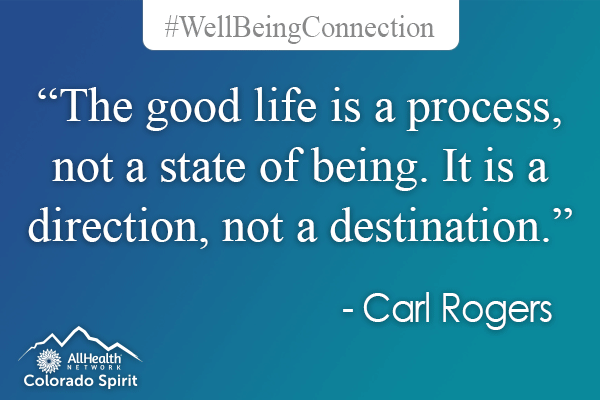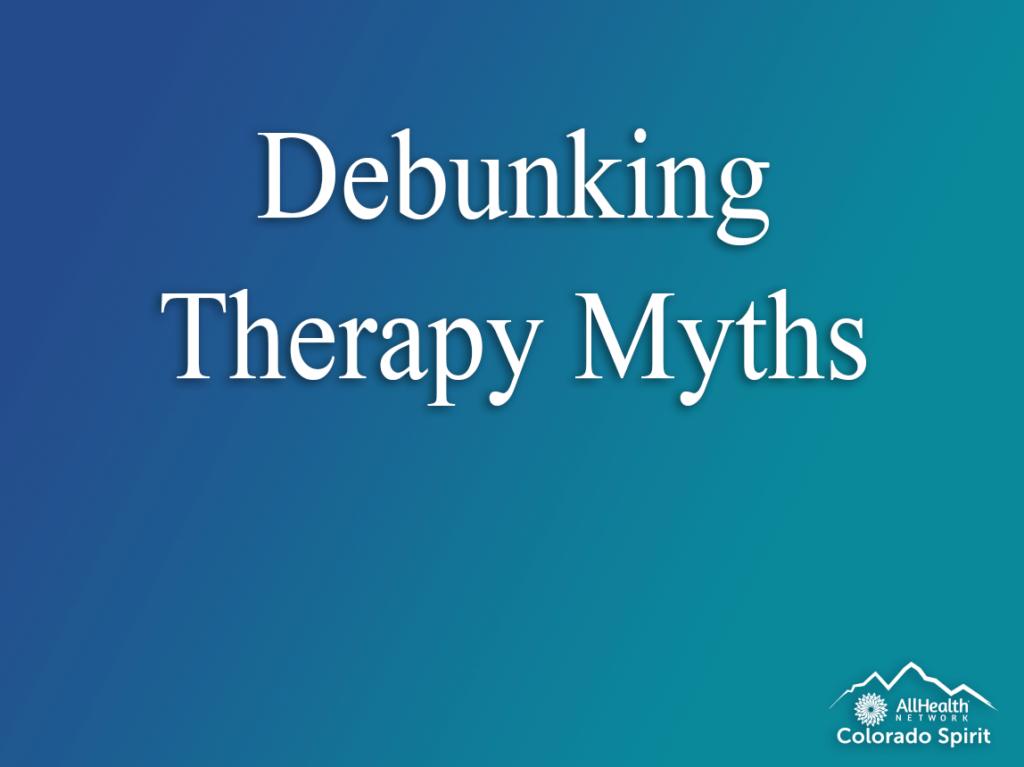Welcome to the Weekly Well-Being Connection! Each week we will share advice from our clinical experts on ways to care for your mental health and well-being throughout COVID-19.
We appreciate Colorado Spirit Counselor, Sara Harris, LSW, writing this week’s content!
The Colorado Spirit Team at AllHealth Network has received a lot of questions about how to access therapy and how therapy works, so we wanted to share some information we find helpful. There can be a great deal of confusion, myths, and stigma when searching for behavioral health support. Because behavioral health support is not often spoken about in the public sphere, many people rely on stories they have heard and media portrayal — leaving them unsure of what therapy actually entails. We have found there are a lot of myths out there that we want to address.
Myth: Therapy is only for people with severe mental health issues or a lot of money. The media often portrays these two character roles: a character on the brink of collapse or crisis or a wealthy character receiving therapy as a glamorous hobby. These kind of stories circulated throughout the media paint a construed view of who therapy can help, and what therapy can look like. Therapy is obviously useful in severe situations, but it’s also incredibly valuable as a prevention method. Therapists use evidence-based practices that teach lifelong skills to assist your emotional well-being.
Myth: Talking about my feelings isn’t going to help.
While therapy does include talking about and identifying feelings, it also gives you a safe space to talk freely and process your emotions. While you talk about your feelings, therapists are looking for patterns to help you identify tools and skills to manage your thoughts, feelings, and behaviors.
Myth: Once I start therapy, I’ll have to be medicated or go forever.
The majority of individuals who go to therapy are not prescribed medicine. Therapy allows you to work as a team to achieve your goals in a way agreed upon between both you and the therapist. You may not know the goal when you begin but your therapist will quickly help you figure it out. Therapy is often short-term, with the hope you learn to recognize patterns in yourself and to make changes on your own using the skills you learned in sessions.
Don’t let the media’s spin or your friend’s bad therapy experience dictate the future of your well-being. We are all experiencing high amounts of stress to the pandemic and can always benefit from a mental health check in.
To read more on therapy myths debunked, check out Real Therapists Bust Therapy Myths . Do research to find a therapist that fits your goals and break the silence around mental health support.

If speaking to someone would help, please reach out. AllHealth Network provides several supports.
- To speak with someone in the Colorado Spirit Program about stress related to the pandemic, please call 720-707-6789 or visit our webpage at allheal thnetwork.org/Colorado-Spirit
- For information about other services at AllHealth Network or to get connected with ongoing behavioral health support, please call 303-730-8858. AllHealth Network is continuing to provide service via telehealth or by phone and our Crisis Walk-in Center remains open 24/7.
If you are experiencing a mental health crisis and are in need of immediate assistance, please call the Colorado Crisis Hotline at 1-844-493-8255 (TALK) or text TALK to 38255.
Be sure to follow us on Facebook to receive information about our free groups and get notifications when we post coping tips, mindfulness suggestions, and more.


